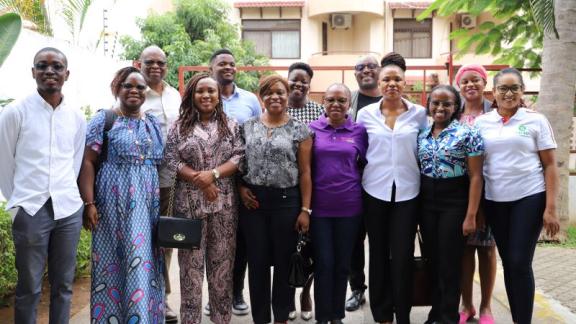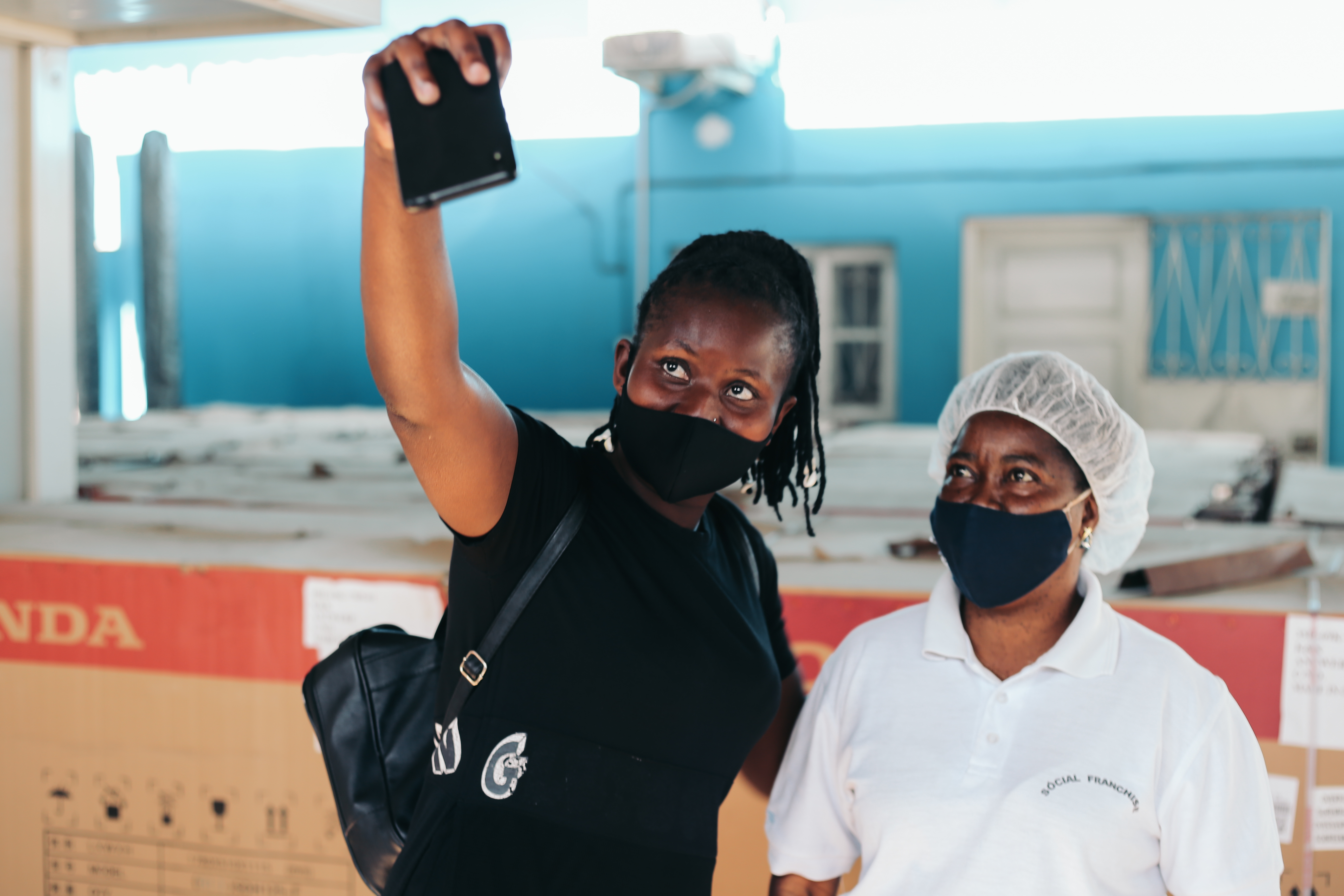The Stand Up project team from IPPF Africa Region was recently on a working visit to IPPF’s Member Association in Mozambique - Associação Moçambicana para o Desenvolvimento da Familia (AMODEFA). The purpose of the visit was to assess the implementation of the Stand Up Project in Mozambique, and visit the project’s stakeholders including: the government, international oversight partners, local partner organizations, and beneficiaries.
Funded by Global Affairs Canada (GAC) through Oxfam Canada, Stand Up is a 6.5 year multi-stakeholder, multi-country initiative that contributes to the increased enjoyment of sexual and reproductive health and rights (SRHR) by adolescent girls and young women (10-29 years), other women of reproductive age (30+ years), and men and boys, in strategically selected Mozambican and Ugandan districts.
IPPF Africa Region and its Member Associations in both countries are responsible for the component of the project which aims to strengthen knowledge and capacity of service providers and healthcare facilities to improve the provision of comprehensive sexual reproductive health (SRH) information and services.
Stand Up is currently in its third year of implementation.

Interventions by Stand Up’s Local Partner Organizations
With the support of several government institutions including: the Ministry of Health, Nampula’s Provincial Directorate of Health, the Provincial Directorate of Education and the District Services for Women and Social Action, the Stand Up project seeks to address the various challenges faced by adolescent girls and young women in Nampula province.
According to Ms. Sylvia Ekponimo, Stand Up’s Project Advisor, the initiative does this through a consortium of local partners with extensive expertise in SRHR programming.
“Across Mozambique, AMODEFA is renowned for its expertise in quality SRHR service provision. Within the Stand Up partnership, AMODEFA’s role is capacity building and strengthening for service providers, strengthening health information and management systems and championing quality of care,” she says.
The local partnership sees the organization Centro de Pesquisa em População e Saúde (CEPSA) conduct formative research on SRHR among adolescent girls and young women, generating evidence on the same.
Associação Moçambicana da Mulher e Apoio a Rapariga (OPHENTA) creates SRHR awareness through extensive media, edutainment, and public awareness campaigns. OPHENTA also engages in advocacy, lobbying, political campaigning and influencing, including on Comprehensive Sexuality Education (CSE).
Associação LAMBDA promotes positive gender and sexuality-related norms through use of a peer education strategy with LGBTQI+ youth to raise individual and community awareness on SRHR, shifting attitudes and behaviours.
To drive change at the community level, Stand Up also works with several influencers including community/traditional, political and religious leaders, youth leaders, teachers, and parents.

Successes of the Stand Up project
Since the start of the project in 2021, Stand Up has achieved various successes.
“Over 120,537 people (92% female) have been reached with SRHR information and services. Of those reached, 63% are aged 15 – 24 years,” says Ms. Ekponimo.
The most accessed services include family planning, HIV counselling and testing, STI treatment and management, antenatal care (ANC), and abortion-related services. Over 450,000 condoms have been distributed through Stand Up.
AMODEFA’s Executive Director says that one of the successful strategies that the Stand Up project uses to reach its target population, who include those in hard-to-reach areas, is the use of ‘mobile brigades’.
“The mobile brigades are taken to communities that do not have health facilities in close proximity. It is difficult for these communities to trek the long distance to seek services, or to afford transport money. Additionally, most are poor and cannot afford to pay for services at the facilities, so they neglect their health. Our mobile brigades are a huge relief for them, where they access our wide range of quality sexual reproductive health services at no cost,” says Mr. Simione.
Challenges faced by adolescent girls and young women
In Mozambique, adolescent girls and young women face various social, cultural, gender-based, and structural barriers which hinder the enjoyment of their sexual reproductive health and rights. These challenges impede their access to SRH information, commodities, and services, which in turn contribute to negative health outcomes.
This is evidenced through Mozambique’s high adolescent birth rate of 166/1000 women aged 15-19 years. Early child marriage is alarmingly high, where 17% of girls are married before age 15, and 53% before age 18, according to UNFPA and UNICEF. Mozambique’s maternal mortality ratio is 127 for every 100,000 live births, with unsafe abortion being a leading cause of maternal deaths despite the country’s liberal abortion laws.
Mr. Santos Simione, AMODEFA’s Executive Director says data from the organization’s seven clinics across the country reveals a high demand for abortion services among young women. According to the 2011 Mozambican Demographic Health Survey (DHS), at least 4.5% of all adolescents reported having terminated a pregnancy.

In Mozambique, the Stand Up project is implemented in three districts in the northern coastal province of Nampula: Nacala, Mecuburi and Nampula City. Nampula is Mozambique’s most populous province with a registered population of 5.7 million inhabitants (21% of the country population) according to the 2017 census. 47% of Nampula’s population are under 15 years.
To find out more about the Stand Up project click here.
Cover photo: The IPPFAR Stand UP project team with the Oxfam in Mozambique Stand Up project team.
Follow IPPF Africa Region on Facebook, Twitter, Instagram and You Tube.
when











